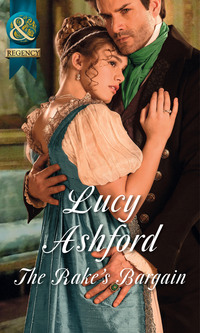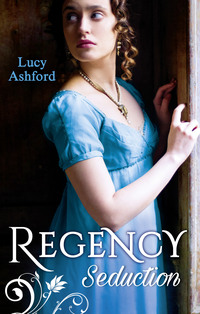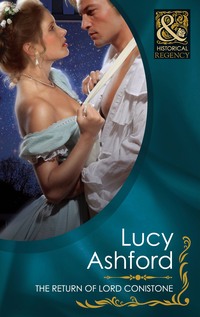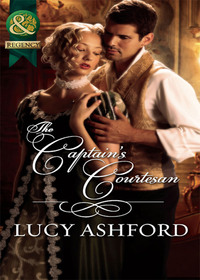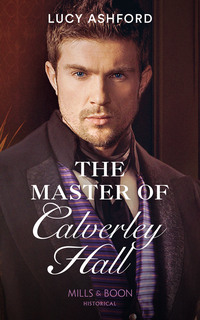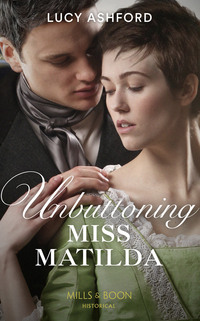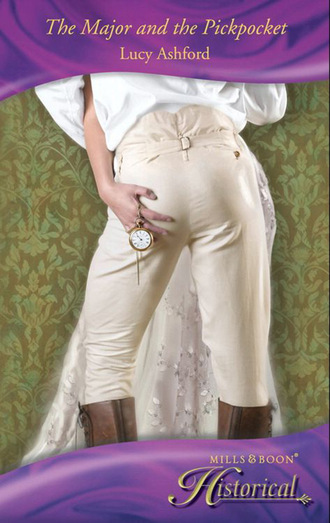
Полная версия
The Major and the Pickpocket
Sir Roderick Delancey had been a friend and neighbour for as long as Marcus could remember to the Forrester family on their rather ramshackle Gloucestershire estate, and when Marcus’s mother had run off, amidst such disgrace that her husband, a broken and impoverished man, died soon after, Roderick took responsibility for his godson Marcus without hesitation. Not possessing any children himself, Sir Roderick had paid for Marcus’s schooling; and in the vacations Marcus spent long weeks at his godfather’s beautiful country mansion, which he came to regard as his home, his own home having to be sold to cover his father’s debts.
After Oxford, when Marcus set his heart on joining the army, Sir Roderick had offered to buy him a commission in one of the top cavalry units; but Marcus, who had his own kind of pride, refused, and became a captain in a line regiment. He was swiftly promoted, and when his regiment was sent to America to fight under Cornwallis, Sir Roderick continued to write regularly to his godson—but last autumn the letters had stopped.
And now Marcus knew why.
Some day, Marcus had resolved, he would return to active service. But not yet. He had another battle to fight first, on Sir Roderick Delancey’s behalf.
At the corner of Half Moon Alley, a crowd had gathered around a couple of street entertainers who, using a stretch of low wall as their table, were tempting passers-by to bet on which of three upturned cups covered a coin. The first of the pair, a ragged-looking man with a wooden leg, was dextrously switching the cups to allow onlookers tantalising glimpses of the bright coin, while his accomplice, a slim youth wearing a long coat and a cap rather too big for him, was strolling around and drumming up trade in a light, cheerful voice. ‘Roll up, roll up, ladies and gennelmen! Put your penny down, guess which cup hides the sixpence—it’s easy, see?—and win it for yourself! Yes, win a whole, shiny sixpence! Roll up, roll up—’
Then the lively youth broke off, because his sharp eyes had observed what Marcus now saw—a fat member of the Watch huffing and panting towards the pair with his stick raised, and two of his companions coming up behind. ‘Haul them two coves in!’ the watchman roared. ‘They’re thieves and scoundrels, the pair of ‘em!’ The man with the peg-leg had his coin and his little cups thrust deep in his pockets in no time; tucking his wooden limb under his arm, he raced away on two exceedingly sound legs, while, doubtless by prior arrangement, his young companion took off in the opposite direction towards Hal and Marcus, twisting and turning nimbly through the crowds that thronged the pavement. Marcus watched, interested and impressed, as the lad, though caught briefly by the wrist by one of the Charleys, kicked his way free and ran on boldly, his ragged coat flying and his cap crammed low over his head. As he drew nearer, Marcus glimpsed emerald green eyes glinting above an uptilted nose, and a merry mouth curled in scorn—until the lad realised some more watchmen were hurrying up from the other end of the street, thus cutting off his escape.
Now, Marcus Forrester could never understand why a pair like this—up to no real harm, as far as he could see—should arouse the full ire of the law, when murder and mayhem went on without interruption in some of the hellish back streets where the Watch were afraid to even set foot. ‘Let’s even the odds,’ he murmured to Hal. And just as the lad was hesitating, no escape in sight, Marcus reached out, grabbed him by the arm—‘Let go of me, you dratted coneyjack!’ was his only thanks—and thrust the slim fugitive, whose head barely came up to his shoulder, behind his back into a dark doorway. More colourful protests came flowing in abundance from that clear, expressive voice; but Marcus ordered through gritted teeth, ‘I’m trying to help, you young fool. Stay there. And shut up.’ Hal, brown eyes a-twinkling, completed their bodily barricade of the lad’s hiding place; then the pair of them, arms folded, pretended to look on as if faintly bored, while the breathless old watchmen—the Charleys—elbowed their way through the swirling London crowd, up and down the street, looking in vain for their quarry. ‘Where’s that there lad?’ one of them bellowed. ‘Old Peg-leg’s helper? Up to no good, ‘im and all his kind, should be ‘anged the lot of them—which way did ‘e go?’
Marcus cast a swift glance back into the doorway, where the youth, having decided rather sensibly to cooperate, was now crouching silently behind him and Hal. Marcus saw again, with a kind of startlement, that pair of wide, incredibly green eyes taking everything in; and just at that moment the young fugitive, sensing his gaze, looked up at him and—grinned.
No fear. No fear at all, in that smooth young face…Marcus frowned, then quickly switched his attention back to the watchmen, who were shaking their heads, swearing volubly and stamping off down the Strand. Marcus looked back into the doorway and nodded. ‘All clear now. Off you go.’ The lad, emerging blithely from behind the long folds of Marcus’s riding coat, whispered, ‘My thanks’, and quickly vanished into the crowds.
Hal lifted one querying, humorous eyebrow at his friend. ‘Still on the side of the underdog, I see?’
‘Most definitely,’ declared Marcus. ‘Why the hue and cry? They were only a couple of street entertainers.’ But even as he dismissed them both, he was aware that the younger one had puzzled him considerably. ‘My thanks… ‘That voice, if you ignored the insults, had been expressive and clear. No hint of low-life in those parting words. He shook his head, swiftly banishing that bright, green-eyed gaze from his mind. ‘On to business, Hal. Where are we heading after we’ve eaten?’
‘I thought we’d go to a new place in Suffolk Street, called the Angel,’ explained Hal. ‘It’s discreet, private, and has some of the best gaming in town. Oh, yes. I know—’ he raised a finger to silence Marcus’s protests ‘—you’re never going to gamble again. But let me just say this. You want to get your revenge on the loathsome Corbridge, for ruining your godfather. Am I right?’
‘You are,’ replied Marcus, his mood grim once more.
‘Then remember your army training, dear boy. Go to the kind of haunts your enemy would frequent. Probe his weaknesses. And Corbridge’s are…?’
‘You’ve got all night to listen? Well, apart from his general obnoxiousness, his weaknesses, from what I remember, are spending and gambling. And beautiful women, with rather doubtful reputations—’
‘Especially young fillies with an eye for the gaming table,’ broke in Hal. ‘Lady Franklin, Cecilia Connolly, and that ravishing blonde known as La Fanciola from the Opera House—they are all exquisitely golden-haired, all greedy for money by fair means or foul, and he’s dallied with them all! So listen, it’s quite simple. What you must do is find another of the same kind—young, accomplished, preferably with guinea-gold curls—persuade her to entice him to the card tables at some private establishment—and use her to get back all your godfather’s money off Corbridge!’
Marcus laughed, shaking his head. ‘That’s meant to be simple? I’ve got a better idea. Why don’t I just run him through? It would be a damn sight easier.’ His hand moved instinctively to his pocket, to check that he had enough money for the night ahead. And then he went very still. ‘My wallet,’ he breathed. ‘It’s gone.’
Hal’s eyes widened. ‘Are you sure? You might have left it somewhere, or dropped it in the street, perhaps…’
Oh, no. Marcus knew he hadn’t dropped it. Suddenly he remembered the young fugitive with the mocking green eyes. He remembered, too late, the light hand that he felt brushing his coat as the lad departed. He turned to Hal and said flatly, ‘If you’re still set on a game tonight, you’ll have to lend me the stake. Until I get to my bankers in the morning, I’ve not a penny to my name. That young wretch we helped back there has repaid me by picking my pocket.’ And, Marcus vowed, if he ever caught the lad, he would give his backside a beating he’d never forget…
Hal frowned. ‘The ungrateful rogue! Well, of course I’ll lend you something, Marcus. Who knows? Tonight at the Angel your luck might change for the better!’
‘I certainly hope so,’ replied Marcus with feeling. But his bleak eyes did not echo that smile. And Hal, who had been intending to ask Marcus if he had seen Philippa yet, decided that perhaps now was not the best time to broach that rather tricky subject.
Chapter Two
The street trickster whom Marcus was cursing so roundly was meanwhile twisting and turning knowingly through the assortment of narrow alleyways behind Maiden Lane before finally sidling into the shadows of an empty doorway and listening hard.
Nothing. No pursuers. No Charleys. With a sigh of relief the young thief sauntered off northwards whistling The Bold Ploughboy’, cap pulled down low over forehead, hands thrust deep into shabby greatcoat; because, although it had stopped raining, the February night was still damp and cold. One hand encountered a leather wallet, and those bright green eyes were troubled, just for a moment, at the memory of its owner; then the youngster strolled onwards. Doubtless the dark-haired swell was rich enough not to miss it over-much.
Carefully avoiding the clusters of hard-drinking men who gathered around Bob Derry’s Cider Cellar, the pickpocket, now munching on an apple filched earlier from a fruit stall, chose a secret way through the warren of courtyards that lay behind Drury Lane; then at last came to a halt, gazing up to where a flickering lantern illuminated a faded inn sign. This was the Blue Bell tavern: a pretty name for a low-life inn run by a steel-tongued landlady called Moll. Frowning briefly at the thought of Moll, the youth straightened his shabby coat and marched through the crowded, smoky taproom to push open a small side door into a private parlour, occupied only by a group of men clustered intently round a card game. The sudden draught from the door made the tallow candles flicker. Three of the players leapt to their feet, their hands clutching their cards. Then the fourth one, a gangly young fellow with rather startling tufts of red hair, grinned broadly. ‘No cause for alarm, lads! It’s just our Tassie, bin up to her usual tricks, no doubt.’
The men sat down again. Tassie closed the door with a deft kick, pulled off her cap and threw it defiantly on the table as her long golden hair tumbled around her shoulders. ‘What do you mean, ‘tis only me?’ she challenged. ‘Haven’t you missed me, all of you?’ No reply. Sighing a little, she let her keen eyes rove over the well-worn cards splayed out on the table. ‘Fie, Georgie Jay, if ‘tis whist you’re playing, then I hope you remembered to keep the guard on your pictures, as I told you last night!’
Then the girl sat among the men, quite at ease, as the sturdily built, black-haired man in his thirties whom she’d addressed as Georgie Jay, looked frowning at his cards. ‘God’s blood, but you’re right, Tassie,’ he said.
‘Course she’s right,’ said the red-haired lad, still gazing admiringly at the newcomer. ‘There’s no one to beat our Tassie at cards.’
‘Or dice,’ grinned Georgie Jay. He patted the girl’s shoulder and turned back to the game.
The girl let her fair brow pucker a little. ‘Weren’t you—worried about me, Georgie?’
‘Why, lass? Should we have been?’
She shrugged. ‘Not really. I helped the cups-and-sixpence man up on the Strand.’
‘Old Peg-leg? Did you make much?’
‘Didn’t get the chance. We were chased off by the Charleys.’
‘Good job you can run fast, then.’
‘Indeed.’ Tassie stretched out her legs in their over-large boots and leaned back in her chair, her hands in her pockets, secretly a little upset that they weren’t more troubled by her encounter with the Watch. She decided to say nothing about the dark-haired man and his wallet, though at one time she’d have told Georgie Jay everything, for he was the undisputed leader of this motley crew of travellers, and had been like a father to her ever since he’d found her eight years ago, alone on a country lane. ‘We work when we can,’ he’d told her, ‘and when we can’t—for times are hard for poor folks like us—why, then, we take a little from those who have enough and to spare!’ Yes, Georgie Jay had been her saviour and protector, and she would always be grateful to him. But things had changed. Oh, how they had changed.
Moll, the buxom landlady, had just come into the room to see what was going on, Then she spotted Tassie, and scowled. ‘Our Tassie’s had a run-in with the Watch, Moll!’ Georgie Jay told her.
‘Lord’s sake,’ said Moll, ‘what a fuss you all do make of that girl. ‘Tain’t natural, a grown lass like her trailing round with you all.’
Tassie met Moll’s glare with stony dislike, and began to get to her feet, but Georgie reached out to forestall her. ‘Tassie’s one of us, Moll. Bring the girl some food, will you? You know she’ll be ready for her supper.’
Tassie was; but she fought down the hunger pangs gnawing at her ribs. ‘My thanks, but I’m not hungry.’ Most certainly not for anything Moll dished out.
She picked up her cap, ready to leave; but just at that moment Georgie Jay exclaimed, ‘Tassie! Now, what in the name of wonder is that?’ He was pointing at the ugly bruising on her wrist, where the Watch man had grabbed her.
‘It’s nothing. Nothing at all.’ She stepped quickly back, shaking down her sleeve.
‘So you were in danger! Look, Tass, perhaps it really is time you stopped all your trickery out on the streets…’
‘Oh, fiddlesticks, Georgie,’ she said airily, ‘you all have close shaves with the Watch every now and then, don’t you? Tonight was no different!’
But Georgie Jay was sighing as he gazed at Tassie’s defiant face beneath her tumbling curls that glowed a fierce gold in the flickering candlelight. ‘You’re a lass, Tassie,’ he said regretfully. ‘It’s as simple as that. Things just can’t go on the same. Why, you’re nigh as tall as young Lem! How old are you now—fifteen, sixteen?’
Tassie shrugged her shoulders, guessing now was not the best of times to tell him she was seventeen. ‘How should I know how old I am? Do you really think anyone used to celebrate my birthday?’ No, indeed. Painful memories flashed through her mind. The big old house where she’d spent her early childhood. The long days spent locked in her room, learning her letters or struggling over hateful stitching with frozen fingers. The endless fear of punishment. She’d run because she felt that nothing, anywhere, could be worse.
She realised now that she’d been more than lucky to be found by good-hearted Georgie Jay, who still lived by the honourable code of the travelling folk, and insisted that his followers did the same. He’d stoutly declared that Tassie had a place with them for ever; but even he, it seemed, was now having his doubts. And so, perhaps, was she.
‘All the same,’ he was saying now, ‘we need to have a talk, lass.’
Tassie gazed at him steadily. ‘Are you trying to tell me that you don’t want me with you any more?’
Georgie Jay looked unhappy. ‘We’ve been doin’ a bit of thinkin’ and Moll’s got a grand idea that might suit you just fine!’
Tassie’s eyes flashed warningly as she looked at the older woman. ‘Oh, has she now?’
‘Moll’s got a brother,’ Georgie pressed on. ‘He and his wife, they’ve got a small farm—Kent way, isn’t it, Moll?—and they could do with some help around the place—’
Tassie turned on Moll incredulously. ‘You think that I’d go as a servant to your brother? The one you were going on about the other night, saying he was a miserable skinflint and a tyrant?’
Moll coloured and looked angry. ‘There’s a good opportunity for you there, young madam, and don’t you scoff at it!’
‘I’ll scoff at it all right,’ Tassie breathed. ‘You’d better think again, Moll, if you want to find your brother a—a cheap skivvy.’ And, holding her head high, she marched to the door that led to the stairs, and closed it with a resounding bang behind her.
Once in the inner hallway, though, Tassie stopped, fighting to control the emotions that were now shaking her body. Despite her words of bold defiance, there was a huge lump in her throat, and her heart ached sorely. She’d known for some time that things couldn’t go on as they were. But if Georgie Jay and his comrades didn’t want her, she had no one. No one.
She heard them all getting up. One by one the others—Lemuel, Billy, and kind old Matt who played the fiddle at country fairs, who’d all been her friends for years—traipsed out through the other door to the taproom to have their meal, until only Moll and Georgie were left in there. Tassie bit her lip. Moll and Georgie. Usually Georgie Jay and his friends kept pretty much on the move, taking rooms at various inns or lodging houses depending on the work they found. But this winter they’d spent all of the last two months at the Blue Bell—because Georgie Jay had taken to sharing landlady Moll’s room, and Moll’s bed. And now Tassie could tell by the sound of clacking little heels on the flagstones that Moll had moved towards the jar of gin that she kept for herself on a high shelf near the door. Georgie Jay must have followed her; he was saying, in a low voice so that Tassie could only just hear, ‘I did warn you she wouldn’t like the idea, Moll.’
‘Such a fuss about a silly girl,’ Moll snapped back. Tassie heard the rattle of gin jar against beaker; and could just picture Moll drinking it down in one greedy swallow. ‘All right, then. I’ll not interfere! But you’ll have to think of somethin’ for her, Georgie Jay. Sakes alive, you must have seen the way men are starting to look at her! Lemuel worships the ground she walks on, and that big simpleton Billy watches her all the time. She’s becomin’ a real pretty piece, and there’ll be trouble soon if you don’t look out…’
Tassie could stand to hear no more. Horrified to find that her eyes were smarting with tears, she almost ran up the rickety staircase to her tiny attic room, where she was greeted by the loud squawking of a brightly coloured parrot gazing at her from its perch by the window. Georgie Jay had bought Edward for her seven years ago in Dorchester market, and now she angrily dashed away her tears with the back of her hand and stroked the bird’s beautifully-crested head, whispering, ‘How can Georgie Jay be so taken in by that—that strumpet, Edward? Moll’s fat, and she paints her face, and she pickles herself in gin!’
Edward cocked his beady eye at her. ‘Who’s a pretty girl, then?’ Tassie almost smiled. But she couldn’t ignore the fact that what Moll had said was right. Tassie couldn’t go on pretending to be what she was not for much longer. ‘If only I were a boy!’ she went on in anguish, jumping up to pace the little room while at the same time trying to resist the temptation to chew her fingernails, something she always did when she was distressed. Edward just put his head on one side, his bright eyes blinking, and crunched steadily on the remains of a crust. Tassie drew a deep breath, then flung her big coat on the bed.
Soon after she had joined Georgie Jay’s band, she’d taken to dressing like a lad because it was easier, and when her breasts had started to swell she’d worn loose shirts buttoned to the neck and hoped no one would notice. When her monthly courses began, a kindly serving girl at the farm where they were working came to her rescue and gave her some strips of linen to use, and into the bargain gave her an earthy lecture on how men were fiery creatures, and likely to be aroused beyond reason by the presence of a young, pretty maid. So Tassie tied up her bright golden hair with a piece of twine and pushed it under a cap; as she grew she continued to dress in loose breeches and boots and a rough cambric jacket several sizes too big for her that concealed her swelling curves; and season after season she tramped the dusty roads in the cheery company of Georgie Jay and his band, never complaining of weariness, always hoping that things would remain the same, because in truth she had no other life to turn to.
But she knew, in her heart of hearts, that things were changing fast. Moll had spotted the trouble with Billy already.
Billy was big and strong, but he was simple-minded. His family had been turned out of their cottage when the local landowner wanted to pull it down to make more space for sheep, and Billy had attached himself to the company like a faithful dog, invaluable if there was any kind of hard physical work. Tassie had always felt quite safe with him, as she did with all the others in their little band. But a couple of weeks ago, a little after midnight, Billy had knocked at the door of Tassie’s bedroom. ‘Tass,’ he called out. ‘Let me in, will you? I want ter tell you somethin’.’
She’d opened the door, and instantly smelled that he’d been drinking. Big Billy, with his thatch of wiry black hair, had always been a little over-fond of his ale. So she told him that she would talk to him in the morning; but he’d muttered something and a strange, hot look had spread across his face as he gazed at Tassie, with her hair loose past her shoulders, and dressed only in her thin cotton nightshirt.
He’d tried to kiss her then, grabbing her shoulders and pulling her close. Tassie struggled desperately to push him away, but Billy wrapped one arm around her waist, trapping her, while with the other hand he began to fumble at her breasts. She could feel the hardness of his arousal pressing against his breeches while his hot lips smothered her mouth; and Tassie, gasping, twisted violently and used her knee, very hard, in the place where she knew it would hurt him the most. Billy had whimpered with shock and gone limping off to his room. Tassie hoped fervently that the hateful episode had vanished into the shadows of Billy’s slow mind; certainly he’d not troubled her again in that way, and she didn’t think he would. But it had been an unpleasant reminder that Moll’s warnings were only too true.
And now, they thought they could just pack her off to Moll’s brother in the country! Oh, never. Suddenly she remembered the wallet she’d stolen from the gent in Half Moon Alley. Pulling herself up on the dingy little bed, she sat cross-legged in her boots and buckskin breeches and her man’s shirt, and tossed back her long blonde curls from her face. Then she eased the slim leather wallet from her hip pocket; but her heart sank again, for there wasn’t much in it. A few coins, amounting to little more than two guineas, and a pencilled note, folded up. The coins she put carefully into a little locked box hidden beneath her bed; the note she casually unfolded, preparing to crumple it and toss it aside. But then her eyes opened wide as a curling lock of chestnut hair tied up in a pretty blue ribbon fell on to the bed. Tassie read the note avidly. For my darling Marcus. A little memento. All my love for ever, Philippa.
Well! So her noble rescuer—Marcus—was in love! Tassie instantly held it closer. Philippa’s handwriting was dainty, with lots of curly flourishes, quite the opposite of Tassie’s bold, clear hand; Tassie would be prepared to wager that Philippa didn’t chew her nails as she did, or fuzz the cards at whist, or swear like a trooper when the occasion arose. A prim parlour-miss indeed; the writing was a little faded, but the sheet was still scented with the remnants of some exotic and no doubt expensive floral perfume, which made both Tassie and Edward sneeze. Tassie went over to the window, preparing to hurl the lock of hair and the note out into the darkness. All my love for ever.
Just for a moment, she paused. Just for a moment she wondered what it must be like, to love a man like that; to be loved, in return. Then she pushed the window open and tossed out the lock of chestnut hair and the note into the courtyard, to join the heaps of stinking rubbish down there. ‘Fancy carrying that around with him, Edward.’ She shook her head. Darling Marcus. A little memento…
Edward squawked appreciatively and repeated, ‘Darling Marcus! Darling Marcus!’ Tassie hesitated again; then she pressed her lips together and hurled the wallet through the window as well.


